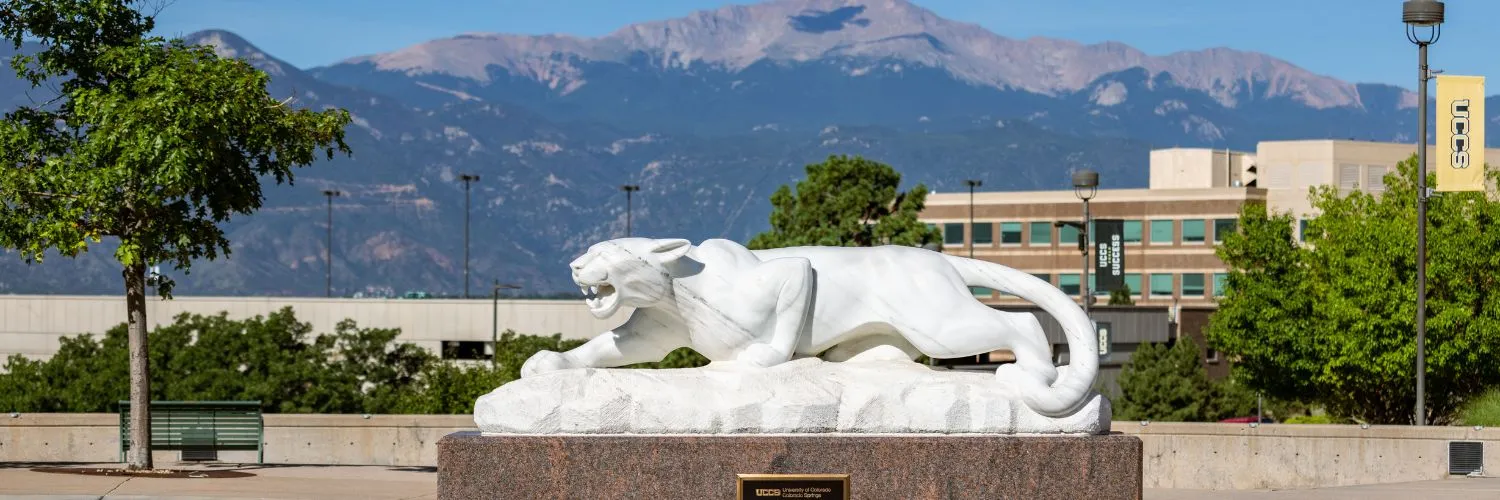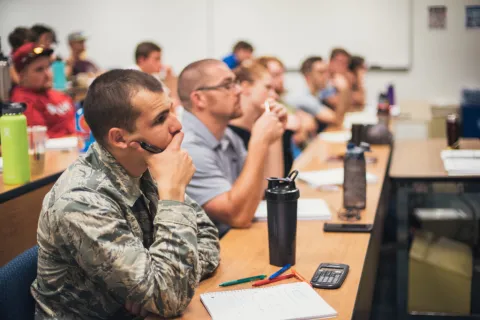
Behavioral Health and Human Services
Bachelor of Arts (BA)- Program Delivery
- On Campus, Online, Hybrid
- Total Credits
- 120 Credits
About the Program
What is Behavioral Health and Human Services?
The field of Behavioral Health and Human Services is broadly defined yet focuses on the objective of meeting human needs through an interdisciplinary knowledge base and demonstration of effective human relationship skills that address client, project, agency, and/or organizational goals. The Human Services profession is one that promotes improved service delivery systems by addressing not only the quality of direct services, but also by seeking to improve accessibility, accountability, and coordination among professionals and agencies in service delivery. Services are provided during prevention, intervention, and remediation phases depending upon the goals of a particular organization.
Become a Behavioral Health and Human Service Professional
The primary purpose of the human service professional is to assist individuals and communities to function as effectively as possible in the major domains of living. A strong moral commitment to serving others is an important consideration for a job as a human services worker. Individuals who show patience, understanding, and caring in their dealings with others and critical thinking, adaptive problem solving, and communication skills allowing them to understand various perspectives or views are highly valued by employers. Other important personal traits include communication skills, a strong sense of responsibility, and the ability to manage time effectively.
Program Accreditation
The Human Services program at UCCS is designed to meet the standards and competencies outlined by the National Organization for Human Services (NOHS), and the Council for Standards in Human Service Education (CSHSE) and is accredited by CSHSE from October 2022 through October 2027.

Focus of Study
The Bachelor of Arts (BA) in Behavioral Health and Human Services emphasizes personal growth, theory-based practices, and experiential learning through fieldwork placement.
The Human Services major provides both the academic and experiential background for the student seeking a career working with diverse populations in the varied and expanding field of Behavioral Health and Human Services.
Program Requirements
- A minimum of 120 credit hours must be completed with a cumulative CU grade point average of 2.00
- To remain in good standing within the College of Education, students must maintain a cumulative CU GPA of 2.0 or better in all semesters.
- Students whose cumulative CU GPA falls below 2.0 will be placed on academic probation for the next semester in which they are enrolled.
- While on probation, students must raise their cumulative GPA to 2.0 within one semester. If the required semester GPA is not met, the student will be
suspended from the College of Education for a full academic year.
Program Coursework
Core Course Requirements (36 credits) - *Available Online
Course # and Title | Credits | Semester |
|---|---|---|
LEAD 1600: Leading Teams and Organizations | 3 | Fall, Spring, Summer* |
COUN 2000: Introduction to Human Services | 3 | Fall, Spring*, Summer* |
COUN 2040: Human Growth & Development | 3 | Fall*, Spring, Summer* |
LEAD 2700: Introduction to Research Design and Methods | 3 | Fall, Spring* |
COUN 3000: Culturally Informed Treatment | 3 | Fall, Spring*, Summer* |
COUN 3110: Interpersonal Communication, Interviewing, & Mediation Skills | 3 | Fall, Spring* |
COUN 3400: Ethics and Values in Human Services or COUN 2400: Ethics I & II (meets requirement for the Substance Use and Recovery Certificate) | 3 3 | Spring*, Summer* Fall* |
COUN 3410: Clinical Assessment & Treatment Planning | 3 | Fall*, Spring* |
COUN 3500: Group Dynamics & Group Process | 3 | Fall, Spring* |
COUN 2950: Fieldwork in Human Services I | 3 | Fall*, Spring* |
COUN 4950: Fieldwork in Human Services II (take twice) | 3 | Fall*, Spring* |
Emphasis Courses (18 credits) - Choose the courses that best fit your career goals.
^Pre-Counseling courses
+Substance Use and Recovery courses
Course # and Title | Credits | Semester |
|---|---|---|
COUN 2500: Introduction to Principles of Addiction Treatment^+ | 3 | Fall*, Spring*, Summer* |
COUN 2990: Introduction to Addiction Counseling Skills+ | 3 | Fall |
COUN 3040: Pharmacology I, II, & Infectious Diseases+ | 3 | Fall* |
COUN 3100: Career Planning & Employment Services | 3 | Fall*, Spring* |
COUN 3600: Motivational Interviewing I & II^+ | 3 | Spring |
COUN 3700: Digital Health & Wellness | 3 | Spring* |
COUN 3800: Social & Emotional Development^ | 3 | Fall* |
COUN 3850: Therapeutic Play | 3 | Spring |
COUN 3900: Military Family Systems | 3 | Fall |
COUN 4070: Adventure Education | 3 | Spring |
COUN 4200: Career Assessment & Transitions | 3 | Spring* |
COUN 4500: Wellness, Resilience, and Emotional Intelligence^ | 3 | Fall*, Spring*, Summer* |
COUN 4750: Mental Health Triage & First Aid^ | 3 | Spring |
COUN 4830: Co-Occurring Disorders and Trauma-Informed Care^+ | 3 | Spring* |
COUN 4900: Process Addictions+ | 3 | Fall |
COUN 4960: Clinical Supervision for Addiction Counselors+ | 3 | Fall* |
LEAD 3000: How College Students Develop | 3 | Fall* |
LEAD 3010: Diversity in Higher Education | 3 | Spring |
LEAD 3030: Crisis Management and Response | 3 | Spring* |
For details on program coursework, please visit the Academic Catalog.
Program Fieldwork
The fieldwork experience is an essential element of the UCCS Human Services degree program. It involves a supervised off-site human services field training experience. This training provides students with the opportunity to apply their theoretical knowledge; implement, develop, and assess the efficacy of human services skills; and develop the professional and personal attitudes important to the career of a human services professional. Students are supervised by experienced professionals who teach relevant skills, provide supervision of ongoing work, and serve as role models of professional identity and behavior.
Students must be approved by faculty for fieldwork and meet all requirements throughout the program. By the completion of the UCCS Human Services degree program, students will complete at least 350 hours total of fieldwork experience. Please contact the DCHS Fieldwork Coordinator, Fred Washburn (fwashbur@uccs.edu), with more questions.
- COUN 2950 Fieldwork in Human Services I
- 50 Fieldwork hours are accumulated
- Students are introduced to the fieldwork experience and primarily participate through the observation of experienced human services professionals.
- COUN 4950 Fieldwork in Human Services II
- 300+ Fieldwork hours are accumulated, typically between 2 semesters
- At least 100 hours are to be completed during the student’s junior and/or senior years.
COUN 4955 Fieldwork in Human Services II (Campus Connections)
300+ Fieldwork hours are accumulated, typically between 2 semesters
At least 100 hours are to be completed during the student’s junior and/or senior years.
Suggested Emphasis Courses by Career Goal
Students with goals to pursue careers in Counseling or Substance Use and Recovery are encouraged to take emphasis courses indicated below.
Pre-Counseling courses enhance the knowledge, skills, and attitudes of students who are interested in pursuing a master's degree in counseling and human services. Students will learn to understand and manage emotions, set and achieve positive goals, demonstrate empathy for others, establish and maintain positive relationships, and make responsible decisions for themselves and the people they will serve.
Substance Use and Recovery courses allow students the opportunity to seek certification as an addiction counselor within the state of Colorado. The undergraduate curriculum is designed to meet the core curriculum standards set forth by the Colorado Office of Behavioral Health and help students become CAT and CAS certification eligible.
Admission Details
For New Students:
To learn more about admission requirements and the application process, please visit the UCCS Admissions page.
Additional resources for Admissions:
How to Declare Your Human Services Major
After being admitted as an undergraduate student to UCCS, schedule a time with your academic advisor to officially declare your Human Services major.
Please contact the Human Services Coordinator within the Department of Counseling and Human Services for any questions about the Human Services major.
- Tel: 719-255-4996
- Email: education@uccs.edu
For Current Students:
In addition to your academic advisor, every Human Services student also has a faculty advisor assigned alphabetically by the students' last names. Connect with your faculty advisor today!
- (A-C) Dr. David Johns
- (D-J) Dr. Markus Moeder-Chandler
- (K-R) Amanda Bear, M.A.
- (S-Z) Lindsay Fahey